The holiday season is upon us yet again. It’s time to bust out the tiny ceramic village, pop the turkey in the oven, and welcome extended family into our homes. However, while we’re busy watching the endless stream of Hallmark movies and soaking up holiday cheer, we can easily forget that the holidays can present some unique dangers for our pets. Here are three common pet holiday hazards, and how to protect your pet.
#1: Holiday decor and pets
The holidays wouldn’t be the same without the associated decorating, which is often also an important family tradition. Pets, however, can see your decorations entirely differently. Here are some tips on safeguarding your pets from a decor disaster this year:
- Christmas tree — Keep the following in mind:
- Prevent tipping — Your cat likely will want to climb your tree, and your dog may excitedly tail-whip close by. If the tree falls, you will have a huge mess on your hands or, worse, you or your pets could be injured. Use fishing line to anchor the tree to the ceiling or a doorframe.
- Decorate mindfully — Many traditional tree trimmings can be dangerous for pets. Shiny tinsel is irresistible to playful cats, and ingestion can cause a life-threatening intestinal blockage. Salt-dough ornaments can cause salt toxicity if ingested, and glass ornaments can break and cut furry or human feet. Therefore:
- Choose shatterproof, non-edible ornaments.
- Consider decorating only the top portion of the tree if you have especially rambunctious pets.
- Lights can pose hazards, too, to curious pets who decide to chew on the cords, so unplug lights when not in use.
- Keep the tree water clean — If you have a live tree, your pets will find the water. Never add anything to tree water, no matter what the old wives tales say.
- Limit access — If you can keep your pet away from the tree, you avoid any possible issues. Place tin foil, scat mats, or citrus deterrents, and a skirt cover, at the tree’s base. When you leave the house, secure pets in another room to keep them from temptation.
- Holiday plants — Many are toxic to pets and should be avoided.
-
- Amaryllis, holly, and mistletoe, and lilies — These may cause illness if consumed. Lilies are less popular at this time of year, but only a tiny amount can cause a life-threatening toxicity in cats.
- Poinsettias — Poinsettias are not such a serious concern, but may cause mouth or stomach irritation if chewed or ingested, and are best avoided in homes with known chewers.
- Candles — Beware any open flame. Cats love countertops. They love heights. They also love investigating novel items and chasing flickering lights. They can easily knock over an unattended candle, setting fire to your home, or perhaps themselves. Prevent any possibility of fire by opting for flameless alternatives.
#2: Holiday food and pets
Soon our kitchens will be filled with baked goods, roasted turkey, and Grandma’s famous green bean casserole. For our pets, this means extra table scraps and goodies. A house full of activity also makes for a great opportunity to steal the ham, or go garbage diving. Outlined below are tips on keeping mealtime safe this season.
- Avoid toxic foods — Chocolate, xylitol (i.e., a common artificial sweetener), grapes, raisins, macadamia nuts, onions, and garlic are toxic to pets. If your pet consumes any amount of these foods, contact Fairfax Veterinary Clinic, a local emergency clinic, or the ASPCA poison control hotline immediately.
- Beware of fatty table scraps — High-fat foods can cause dangerous inflammation of the pancreas or other gastrointestinal upset. Pancreatitis may require hospitalization, and can be life-threatening.
- Secure the trash — One man’s trash is every dog’s treasure. But, cooked bones may cause intestinal perforations or blockages, while other trash items may be toxic, or cause a case of “garbage gut,” leaving your pet down and out for a few days.
- Monitor your pet’s weight — Like people, pets will pack on a few pounds over the holidays if allowed to overindulge. Keep your pet’s diet as normal as possible, and avoid excess treats.
#3: Festive gatherings and pets
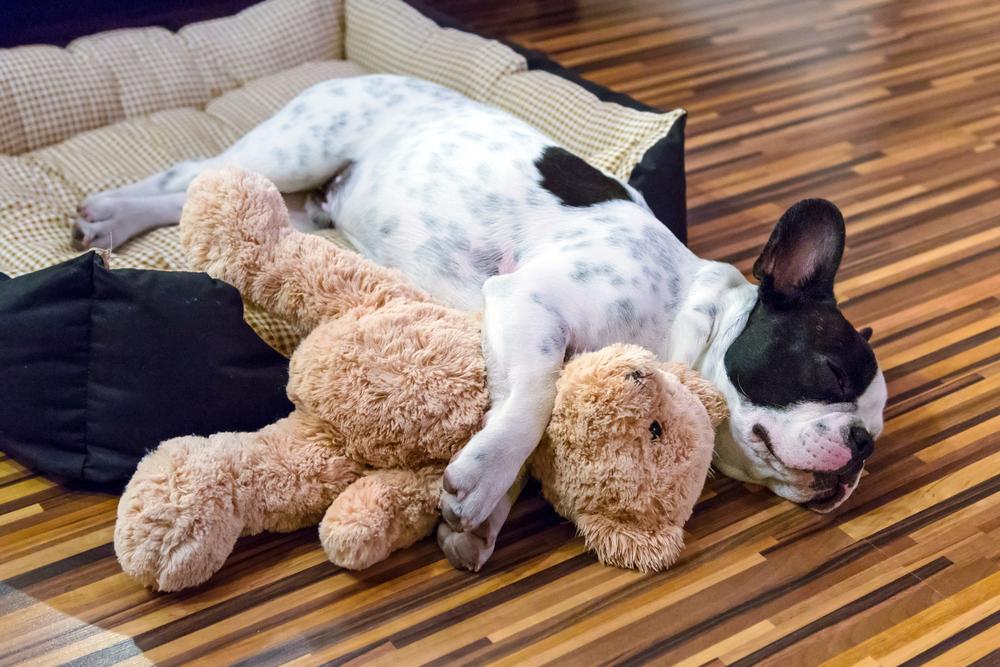
Celebrating traditions or ringing in the New Year surrounded by family and friends can bring great joy, but unfamiliar faces, disrupted routines, and excess noise can cause anxiety in pets. Here’s how to help your pet cope, and keep everyone safe during your next holiday soirée.
- Set some rules for guests — If your pets will be allowed to mingle during the festivities, make guests aware of potential trouble (e.g., your dog has food allergies, or your cat loves attention, but hates being picked up).
- Give your pets a safe space — Consider confining shy or anxious pets to a quiet, comfy space, such as a guest bedroom. Make their space inviting with bedding and a favorite toy.
- Consider supplements or medications —If you anticipate a meltdown, consult Fairfax Veterinary Clinic to discuss whether anxiety medications may be appropriate. Over-the-counter calming supplements are available, or you can try pheromone diffusers (e.g., Adaptil for dogs and Feliway for cats).
- Block escape routes — Guests coming and going means opportunities for your pet to dart out the front door. If you have an aspiring escape artist or a pet who may bolt in response to fireworks, watch them closely. Searching for a lost pet is nobody’s idea of a good time!
- Keep identification up to date — If the worst happens and your pet does become lost during a holiday party, having them microchipped and up-to-date collar identification tags greatly increase your chances of a safe return.
While the above tips will help keep your furry friends safe this season, some pets seem to have a knack for getting themselves into trouble. If, despite your best efforts, your pet gets into a sticky situation this holiday, call Fairfax Veterinary Clinic. Contact us—we are here to help.




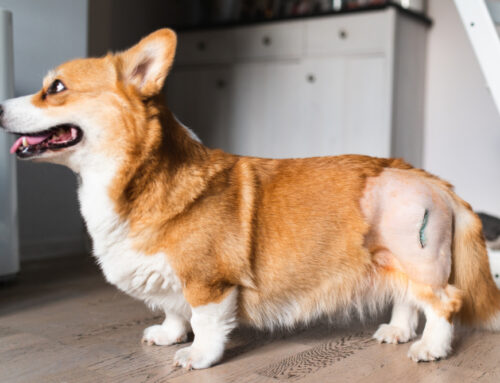
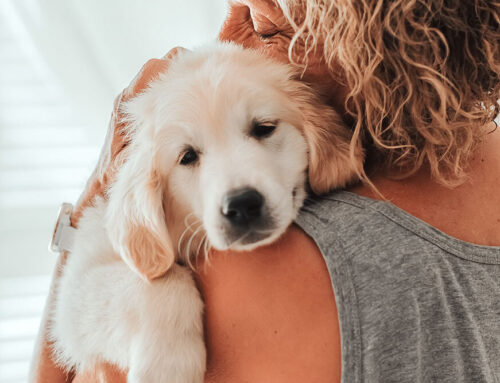
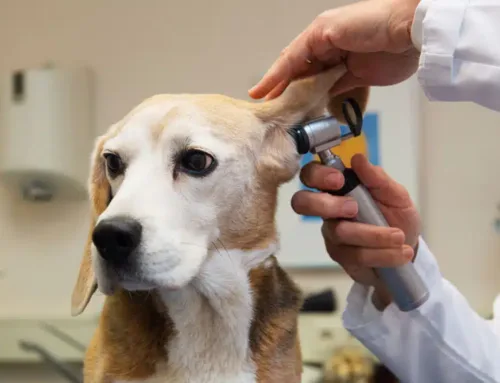
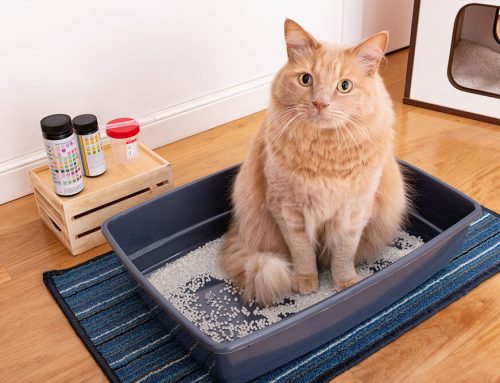
Leave A Comment